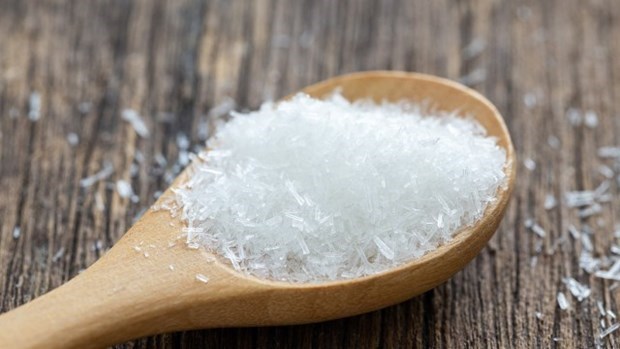Vietnam imposes anti-dumping measures on Chinese, Indonesian MSG
Thứ Hai, 23/03/2020, 15:59
The Ministry of Industry and Trade (MoIT) has imposed provisional anti-dumping measures on some monosodium glutamate (MSG) products from China and Indonesia.
 |
The Ministry of Industry and Trade (MoIT) has imposed provisional anti-dumping measures on some monosodium glutamate (MSG) products from China and Indonesia.
Accordingly, MSG imports from China and Indonesia will be subject to an absolute tax rate of between 2,889,245 VND (123.8 USD at current exchange rate) and 6,385,289 VND (273.59 USD) per tonne.The MOIT began an investigation in October 2019 based on the verification of a dossier requesting the application of anti-dumping measures submitted by representatives of the domestic production sector.
Through a preliminary investigation in accordance with regulations of the World Trade Organisation (WTO), the Law on Foreign Trade Management and related regulations, the ministry assessed the damage to the domestic production sector, the dumping level of Chinese and Indonesian producers as well as the impacts of MSG products on downstream industries and consumers.
The investigation found that, despite safeguard measures in the form of an absolute tax rate at 3,201,039 VND (137.16 USD) per tonne, MSG imports following the application of safeguard tariffs showed signs of being dumped in large volumes, from 2.88 million VND (123.4 USD) per tonne to over 6.3 million VND (269.94 USD) per tonne, regarding imports from China and Indonesia, corresponding to a maximum dumping margin of up to 28 percent.
This level of dumping indicates that the imported goods are threatening to cause significant damage to the domestic MSG industry.
According to the ministry, since 2016, some countries had been experiencing excess supplies, with increasing inventories resulting in stronger exports to other countries, including Vietnam.
This has contributed to hampering the activities of the domestic production sector due to the sharp increase of goods imported into Vietnam. Furthermore, Vietnam is the second largest export market of China and the fourth largest of Indonesia.
Therefore, when the safeguard tariffs expire, goods from these two markets will be exported to the Vietnamese market with a much bigger volume, which could possibly damage the domestic industry.
In addition, MSG products from China and Indonesia are subject to anti-dumping measures from the US and European Union, which will prompt Chinese exporters to seek alternative markets, including Vietnam.
To make a final conclusion on the case, the MoIT will continue to work with stakeholders to verify statistics and hold a public consultation session for all parties involved. At the same time, the ministry will evaluate the overall impact of the case on the parties concerned, including the final consumer.
The investigation is expected to end in the fourth quarter of 2020.
VNA

